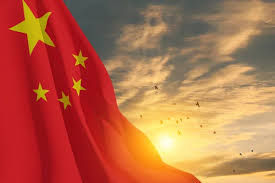TRUMP'S ON POINT BUT THE REMEDY NEEDS A MAKEOVER
- Greenmark 101
- Apr 13, 2025
- 6 min read

On paper Trump's logic makes sense: to raise revenue, to bring trade into balance and to bring rival countries to heel. These conflicting rationales are making negotiating difficult, and business planning impossible. America is running a massive budget deficit, and Trump has said the tariffs will make up for lost revenue — in particular, his 2017 tax cuts, which he has said he wants to extend and expand. Moreover, Trump criticized American trade policy for “subsidizing” foreign countries, said America is “losing” hundreds of billions of dollars to its neighboring nations.
All true. Tariffs can be supportive to resolve these issue. Yet, the ways and means doesn't fit the objective. Trump’s language of schoolyard bullying and vindictiveness toward our closest allies confirms that the United States cannot be trusted.
POINTS TO CONSIDER:
Trumps tariffs may compromise international payments: International payments are crucial for the US economy as they facilitate global trade, allowing businesses to expand operations and access international markets. These payments enable businesses to pay overseas suppliers, compensate international employees, and receive payments from foreign customers. They are also essential for various economic indicators like the balance of payments and international investment position, which help policymakers analyze and address economic imbalance. The dollar makes up a large portion of international payments—58% excluding payments within the eurozone—and foreign exchange transactions. Moreover, the dollar plays a major role in global trade. As of 2024, the dollar is used in 55% of foreign trade invoices globally. Meanwhile, the renminbi is making progress – if not as a store of value, then at least as a means of exchange. Chinese data show that by mid-2024, 27 per cent of China’s total trade in goods was settled in renminbi, up from 17 per cent in early 2022. This means that China is using its own currency to settle just over $50 billion more each month than it did in early 2022.
With the current "tariff war" even in its early stage, the renminbi is picking up traffic and plans to be a contender in the international payment market.
Case in point: Throughout history, the top global currency has tended to be that of the dominant military power. Sterling ruled when Britain had an empire ‘on which the sun never set’, and its currency insured economic dominance on a world scale. When it lost Sterling dominance and replaced by the US dollar, roles material changed, and Britain was reduced an to "also ran." That can happen again, and the US dollar will be reduced to an "also ran."
Trump's use of America’s closest allies is obvious as a quiet pass-through shills for rivals and adversaries, such as China and Russia, are observation with glee. Such actions are hurting American industry, while compromises the country's dominant global power, particularly in terms of its economy and military strength. Public opinion regarding its global influence has ben materially suffered. Indeed, the tariff tantrums seem to erode trust, slowly dismantling a centuries-old foundation that was carefully constructed by Republicans and Democrats. Business leaders who were enthusiastic about the president’s economic agenda shift to near universal alarm because of his plans to unilaterally impose 25% tariffs on imports from Mexico and Canada, the U.S.’s two largest trading partners, and likewise tariff on the entire world.
Last week, the universal response had global stock markets in shock and recriminative, questioning whether Trump fully grasps the consequences of the tariff barrage that he used to fire up a global trade war. As chaos whipped across the planet and American seniors dreaded looking into depleted market-linked retirement savings accounts, Trump may have recognized that $2.5 trillion was wiped off the S&P index.
The financial carnage was not caused by some act of God, like a pandemic, or natural disaster, terrorist attack or foreign crisis. It was the result of a conscious choice by Trump to honor his perceived obligations to the American public - reduce national debt, reduce taxes and create more jobs.
Meanwhile the trade war started to heat up; on Friday morning after China imposed 34% reciprocal tariffs on US imports in a move that will make it far harder for US manufacturers to profit from its vast market. With apparently good and honorable intentions, it backfired. Trump has created a once-in-a-lifetime dilemma - American exceptionalism is at risk, and with it goes representative democracy; meaning that our government is elected by citizens. Here, citizens vote for their government officials. These officials represent the citizens' ideas and concerns in government.
That's what US citizens will be giving up, and in time being subjected to a Chinese political system based i\on authoritarianism There will be no freely elected national leaders, no political opposition is suppressed, all religious activities controlled, dissent is not permitted, and civil rights are curtailed and if you don't like it you disappear and all that is important to you are gone or stolen.
Can a tariff do all that?
Certainly. The world has two sides ; in or out. "In" the reasonable right to think and do as you desire, or "Out" the state tells what to do or you are out.
We must embraces does human freedoms because they are potential casualties to the consequences of tariffs. A clear example of this is the the Great Depression of 1930; a complex economic event caused by a combination of factors, mainly the Smoot-Hawley Tariff Act of 1930. Herbert Hoover, campaigning for president, promised to help farmers by increasing tariffs on agricultural products and creating job - "a chickens in every pot." However, after taking office, lobbyists from other sectors, like manufacturing, pressured him to support a broader increase, leading to the Smoot-Hawley Tariff Act. This act significantly raised tariffs on various goods. Even though Hoover was no longer president, he give the Republicans what they wanted - a near bankrupt US government and massive unemployment.
A consequential factor of the Smoot-Hawley Tariff Act was Hitler's rise to power, which was fueled by the economic devastation of the Great Depression, and his masterful use of propaganda to exploit public discontent. Such events and issues can happen today; citizens are directly affected by the Trump tariffs, may accept authoritarianism because the United States compromised their democratic values.
WHAT TRUMP AND THE UNITED STATES SHOULD DO TO MOVE OFF THE PENDING FULL SCALE TARIFF WAR.
Trump has an unforeseen opportunity to placate all sides, except the adversaries
Revert to a 10% "cross-the board" net tariff on all countries, with formal proceedings for adjustments.
Establish an "Economic Zone" for the top 20 countries who are on the current The Human Freedom Index https://www.cato.org/human-freedom-index/2024https://www.cato.org/human-freedom-index/2024
Countries on the The Human Freedom Index (HFI) list are measured by their level of human freedoms (personal and economic), and citizens are directly affected by the Trump tariffs, and may accept authoritarianism because the United States compromised it democratic values. note: The countries that took the top 10 places, in order, were Switzerland, New Zealand, Denmark, Luxembourg, Ireland, Finland, Australia and Iceland and Sweden (tied at 7), and Estonia. Selected jurisdictions rank as follows: Canada (11), Japan (12), Germany (14), United Kingdom and United States (tied at 17), Taiwan (19), Chile (31), South Korea (32), France (34), Brazil (70), South Africa (73), Argentina (80), Mexico (94), India (110), Ukraine (122), Nigeria (126), Russia (139), Turkey (142), China (150), Saudi Arabia (155), Venezuela (159), and Iran (163). Out of 10 regions, those with the highest levels of freedom are North America (Canada and the United States), Western Europe, and Oceania. The lowest levels are in the Middle East and North Africa, sub-Saharan Africa, and South Asia. Women-specific freedoms, as measured by five indicators in the index, are strongest in North America, Western Europe, and East Asia and are least protected in the Middle East and North Africa, sub-Saharan Africa, and South Asia.
Full trade embargo on countries who are "at war" as defined by the The ACLED Conflict Index, developed by the Armed Conflict Location & Event Data Project (ACLED), is a key resource for understanding global conflict trends. The index uses four indicators to assess conflict severity in different countries and territories: deadliness, danger to civilians, geographic diffusion, and the number of armed groups.
UNINTENTED CONSEQUENCES
According to SPM 89.05 tag for calendar 2025, the U.S. economy will experience sold growth, with the GDP increasing by 3.7%. This growth will be driven by increases in consumer spending, investment, and less government spending. The year will concluded with business surveys indicating high activity and optimism about the future, and a third term for consensus builder.

THINK AND ACT LIKE A POSITIONAL STRATEGIST ... and the rest is easy.
Allow G-101 SPM AI algorithm to be your financial guide.




Comments